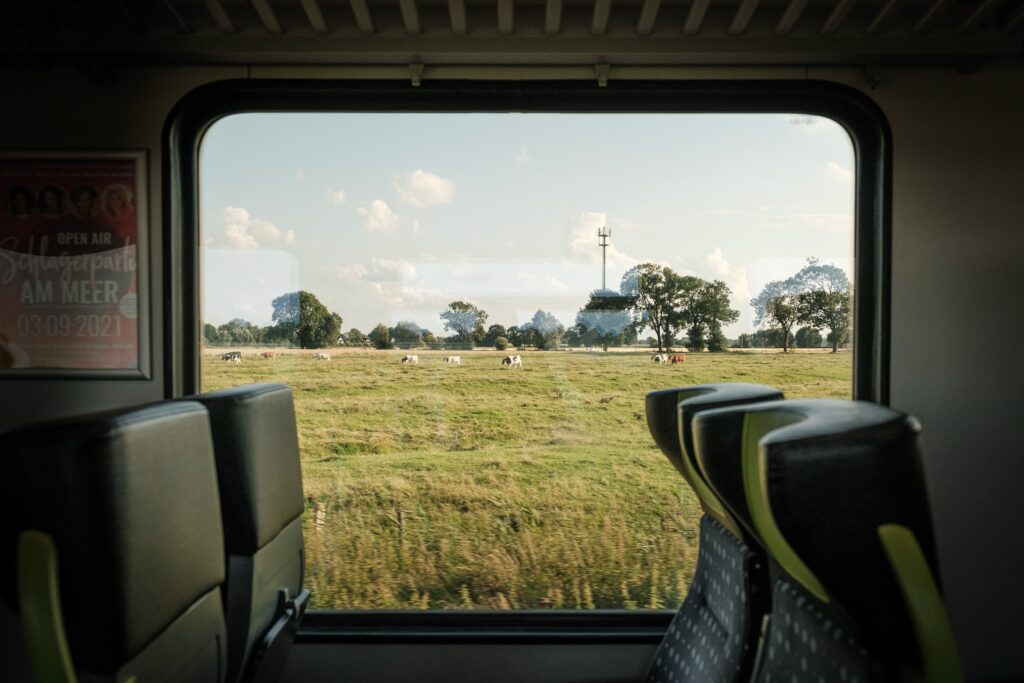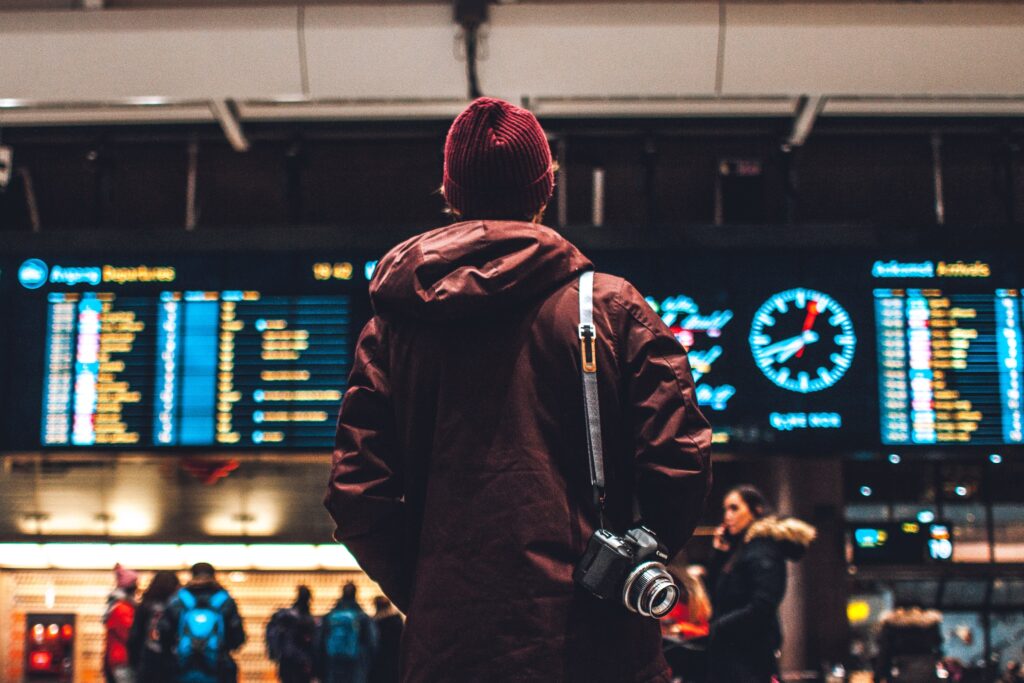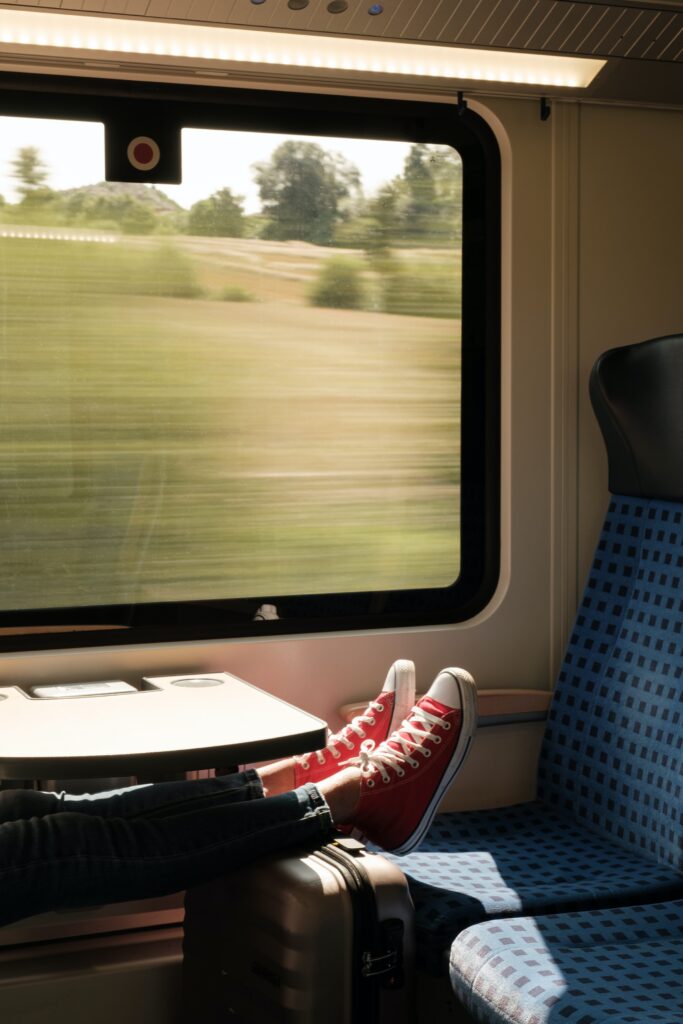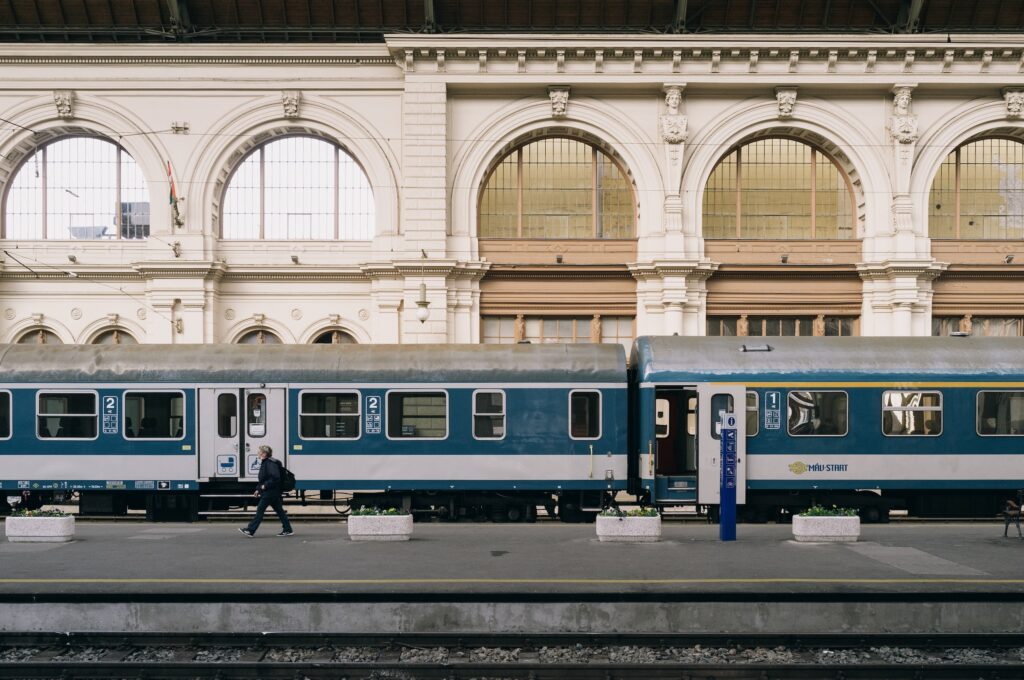Are you a train enthusiast or someone who loves exploring new destinations by rail? Well, we have exciting news for you! The European Union (EU) has recently unveiled comprehensive regulations to enhance rail transport. These new rules prioritize better protection for passengers, ensuring a smoother and more enjoyable travel experience for all. Finally, in this article, we’ll delve into the details of new EU rail regulations and how they will positively impact your train journeys.
-
Rail Transport Is The Eco-Friendly Way To Travel. This article educates about Train Travel by Save A Train, The Cheapest Train Tickets Website In The World.
Understanding the New EU Rail Regulations
To begin with, let’s gain a better understanding of the new EU rail regulations. EU developed these regulations to enhance rail passengers’ rights and foster a seamless travel experience. The rules cover various aspects of rail travel, ranging from passenger rights and accessibility to data sharing among rail operators. Hence, by implementing these regulations, the EU aims to elevate railway transportation’s overall quality and efficiency, resulting in a win-win for all travelers.

Force Majeure Compensation Policy
Previously, train passengers in Europe could demand monetary compensation amounting to 25% of the ticket price for a train delay of more than an hour and 50% for a delay of more than 2 hours. Now, companies will be exempt from these payments if the reason for the delay is a force majeure. This includes everything that railway operators cannot control — for example, storms, floods, earthquakes, terrorist attacks, pandemics, and so on. If a company objectively cannot prevent a train delay or cancellation under exceptional circumstances, passengers should not expect compensation of 50% or 25%. However, companies must still redirect passengers to other trains or refund the ticket if the trip cannot be organized.
Meanwhile, it is essential to note that strikes are not considered force majeure. If a strike causes passengers to be stranded at the station waiting for a train, the company is responsible for ensuring its customers reach their intended destinations. Compensations for delays must remain in effect.
Self-Rerouting and Compensation for Delays
One of the notable provisions of the new EU rail regulations is the introduction of self-rerouting. In the event of a journey delay, if the rail company fails to offer a solution within a reasonable timeframe (typically 100 minutes), passengers have the right to take matters into their own hands. Passengers can independently change their route by purchasing tickets for another train or bus. The rail company must reimburse the new ticket cost, ensuring passengers reach their destination smoothly, even during delays. However, it would be best to consider that the expense should be genuinely “necessary and reasonable,” so riding in a VIP option at the cost of the delayed carrier will not work.

Data Sharing and Improved Ticket Options
Real-time traffic and travel data sharing among rail operators enhance the travel experience. The new regulations aim to foster greater competition among rail operators. They do this by encouraging information exchange about train schedules, occupancy rates, and delays. Moreover, travelers can expect more attractive ticket options due to this increased competition. It will give them a more comprehensive range of choices and increased flexibility when planning their train journeys.
As a result, the newfound cooperation and data-sharing mechanisms among rail operators can potentially create a ripple effect of positive changes throughout the travel ecosystem. As rail travel becomes more convenient and versatile, it may encourage more people to choose trains over other modes of transport, ultimately contributing to reduced traffic congestion, lower carbon emissions, and a more sustainable transportation future.

Improved Accessibility for Passengers with Reduced Mobility
Under the new EU regulations, rail companies must prioritize the needs of passengers with reduced mobility. They must ensure their journeys remain uninterrupted and hassle-free, even during disruptions. This means that individuals with disabilities or mobility challenges can expect improved accessibility and assistance when traveling by train. These regulations empower passengers, allowing them to embark on their journeys with confidence and peace of mind.
According to the new EU rail regulations, if a passenger with reduced mobility needs assistance, they can request to travel exclusively with companions. In this case, the companion is entitled to a free ticket and a seat next to the person they are assisting. Requests for assistance under the new rules are accepted up to 24 hours before departure. This is an excellent advantage for the train industry because bus companies require notification no later than 36 hours in advance, while air and water carriers require it 48 hours in advance.

Sustainability and comfort
The EU’s commitment to sustainability is evident in the new rail regulations. The EU promotes rail transport as a greener alternative, aiming to reduce carbon emissions and contribute to a greener future. With these regulations in place, the EU encourages passengers to choose trains over other modes of transportation. This fosters sustainable travel habits and supports environmental conservation efforts.
Furthermore, bicycle enthusiasts also received strong encouragement and support. The exciting news is that the new trains and upgraded carriages will include dedicated bicycle spaces. These spaces are mandatory, meaning they must be available. Therefore, if you’re a bicycle lover, these specially designated areas will make your train travel even more bicycle friendly.
The Conclusion at New EU Rail Regulation
Indeed, implementing new EU rail regulations signifies improving rail travel for passengers across the continent. It demonstrates the recognition of railways’ crucial role in connecting communities, promoting tourism, and fostering economic growth. The EU’s efforts in enhancing passenger rights and ensuring a smoother travel experience exemplify their dedication to creating a reliable and customer-centric rail network.
In conclusion, the new EU regulations for rail transport mark a significant step forward in prioritizing passenger protection and enhancing the travel experience. These regulations aim to make train travel more convenient, efficient, and enjoyable for all. They include improved accessibility for passengers with reduced mobility. Another positive change is the introduction of self-rerouting. Additionally, increased competition among rail operators will benefit travelers. With these progressive measures in place, passengers can confidently embark on their train journeys. Their rights are protected, and their travel experience is a priority. The EU’s commitment to elevating the quality of railway transportation reflects its vision of a sustainable and passenger-centric future. All aboard for a smoother, more delightful rail travel experience!
A Great train journey begins with finding the best tickets on the most beautiful and comfortable train route. We at Save A Train will be delighted to help you prepare for a train trip and find the best train tickets at the best prices.
Do you want to embed our blog post “How To Prepare For A Train Trip” onto your site? You can either take our photos and text and give us credit with a link to this blog post. Or click here: https://iframely.com/embed/https%3A%2F%2Fwww.saveatrain.com%2Fblog%2F[tpe mylang]%2Fnew-european-rail-regulation%2F – (Scroll down a little to see the Embed Code)
- If you want to be kind to your users, you can guide them directly to our search pages. In this link, you will find our most popular train routes – https://www.saveatrain.com/routes_sitemap.xml.
- Inside you have our links for English landing pages, but we also have https://www.saveatrain.com/pl_routes_sitemap.xml, and you can change the /pl to /fr or /de and more languages.




